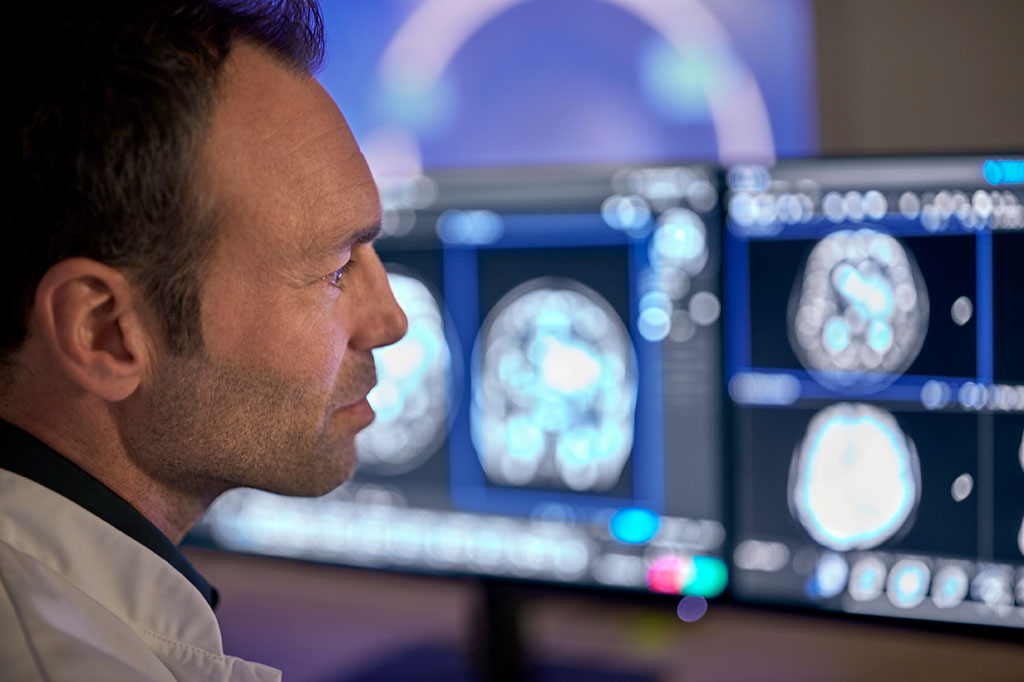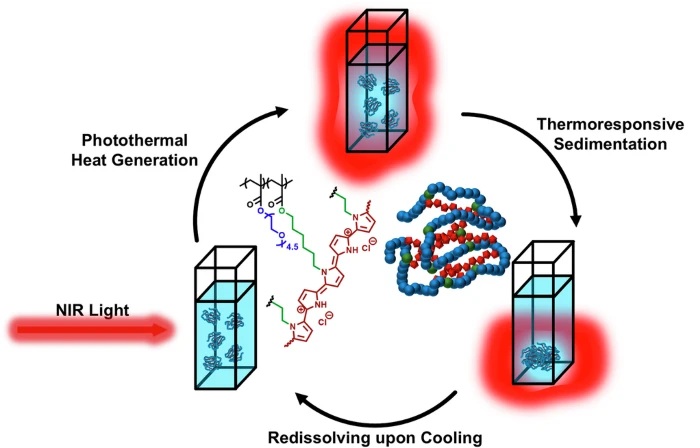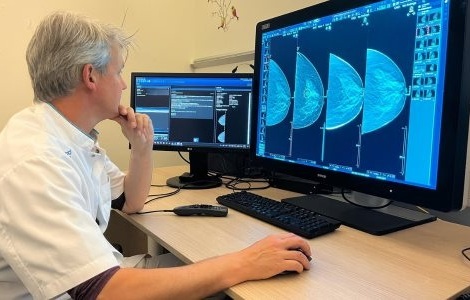Philips Spotlights Latest AI-Powered, Software-Defined MR Smart Systems at ECR 2022
|
By MedImaging International staff writers Posted on 14 Jul 2022 |

Royal Philips (Amsterdam, Noord-Holland) showcased its AI powered workflow innovations available across its portfolio of smart Philips MR systems at the 2022 European Congress of Radiology (ECR 2022), including the US FDA-approved SmartSpeed artificial intelligence (AI) powered MR acceleration software.
With personalized treatment for complex diseases such as cancer increasing the need for high-confidence precision diagnoses, coupled with soaring caseloads due to aging populations and high levels of clinician burnout, radiology departments are under increasing pressure to improve performance, productivity, and profitability. Philips SmartSpeed, the latest addition to the company’s expanding portfolio of AI-driven, smart, connected imaging and smart workflow solutions, helps achieve the Quadruple Aim of improving diagnostic outcomes, enhancing patient and staff experiences, and reducing overall healthcare costs. Adding advanced AI data collection algorithms to Philips’ existing Compressed SENSE MR acceleration engine, Philips SmartSpeed delivers higher image resolution with three times faster scan times and virtually no loss in image quality, representing a major step forward in diagnostic confidence and MR department productivity.
The latest AI-powered MR software increases resolution up to 65% and achieves up to three times faster scanning times compared to conventional MR scans. Coupled with its support for 97% of current clinical protocols – including advanced contrasts and diffusion weighted imaging, and even quantitative imaging such at T1 or T2 mapping for brain, liver, heart or musculoskeletal (MSK) imaging – Philips SmartSpeed helps increase diagnostic confidence in a wide range of patients, including the most complex cases. Its unique deep learning technology is applied at the source of the MR signal and seamlessly integrated with Philips leading Compressed SENSE speed engine to deliver higher resolution and high signal-to-noise ratio needed for detailed images, small lesion detection and enhanced diagnosis. Philips SmartSpeed uses an award-winning AI reconstruction algorithm at the front-end of the MR signal to remove noise and preserve details while enabling k-space data consistency check for trustworthy AI.
At ECR 2022, Philips also showcased its smart connected 3T MR system, Philips MR 7700 that was recently introduced in Europe and the company’s latest MR 5300 1.5T helium-free in operations MR system. The new, FDA-cleared MR 7700 3.0T MR system is the latest break-through MR innovation from Philips that delivers unmatched performance and precision for both research and advanced clinical diagnostics. The XP gradients of MR 7700 provide high accuracy to support a confident diagnosis for every patient with Philips’ highest quality diffusion imaging and advanced neuroscience, supporting improved patient care and lower costs. Also on display was the FDA-cleared MR 5300 system, the company’s latest BlueSeal fully-sealed helium-free in operations MR scanner that is powered by AI, and simplifies and automates complex clinical and operational tasks for outpatient clinical use and MR departments to help increase access to affordable, quality care.
“By taking the Quadruple Aim as a starting point to develop and deploy AI solutions, we have a tremendous opportunity to address the inefficiencies and growing demand that our customers and partners face every day,” said Kees Wesdorp, Chief Business Leader of Precision Diagnosis at Philips. “Powered by AI, our leading technologies and smart connected imaging solutions help turn data into actionable insights to increase diagnostic confidence and help improve clinical outcomes for patients.’’
Related Links:
Royal Philips
Latest ECR 2022 News
- Radcal Demonstrates Accu-Gold TOUCH Series for X-Ray QA and Service
- Carestream Showcases Breadth of Diagnostic Imaging Portfolio at ECR 2022
- Agfa Highlights Newly-Launched VALORY DR Room at ECR 2022
- Mindray Provides Live Scan Demonstration of Its Latest Ultrasound Systems
- Guerbet Introduces New MRI Innovations at ECR 2022
- GE Healthcare Demonstrates AI-Powered Medical Imaging Systems and Solutions
- Fujifilm Unveils New Radiology and Ultrasound Systems at ECR 2022
- Esaote Presents Magnifico Open Magnet MRI at ECR 2022
- Bracco Presents Diagnostic Imaging Solutions That Help Make the Unseen, Seeable
- Bayer Demonstrates New Suite of Digital Radiology AI-Enabled Applications at ECR 2022
- Siemens Presents Latest Innovations in MRI and SPECT/CT Imaging at ECR 2022
- Samsung Provides Live Scanning Demonstrations at ECR 2022
- Canon Medical Showcases Mobile Imaging Solutions at ECR 2022
- ECR 2022 Returns Onsite with State-of-the-Art Medical Imaging Technology
Channels
Radiography
view channel
X-Ray Breakthrough Captures Three Image-Contrast Types in Single Shot
Detecting early-stage cancer or subtle changes deep inside tissues has long challenged conventional X-ray systems, which rely only on how structures absorb radiation. This limitation keeps many microstructural... Read more
AI Generates Future Knee X-Rays to Predict Osteoarthritis Progression Risk
Osteoarthritis, a degenerative joint disease affecting over 500 million people worldwide, is the leading cause of disability among older adults. Current diagnostic tools allow doctors to assess damage... Read moreMRI
view channel
Novel Imaging Approach to Improve Treatment for Spinal Cord Injuries
Vascular dysfunction in the spinal cord contributes to multiple neurological conditions, including traumatic injuries and degenerative cervical myelopathy, where reduced blood flow can lead to progressive... Read more
AI-Assisted Model Enhances MRI Heart Scans
A cardiac MRI can reveal critical information about the heart’s function and any abnormalities, but traditional scans take 30 to 90 minutes and often suffer from poor image quality due to patient movement.... Read more
AI Model Outperforms Doctors at Identifying Patients Most At-Risk of Cardiac Arrest
Hypertrophic cardiomyopathy is one of the most common inherited heart conditions and a leading cause of sudden cardiac death in young individuals and athletes. While many patients live normal lives, some... Read moreUltrasound
view channel
Wearable Ultrasound Imaging System to Enable Real-Time Disease Monitoring
Chronic conditions such as hypertension and heart failure require close monitoring, yet today’s ultrasound imaging is largely confined to hospitals and short, episodic scans. This reactive model limits... Read more
Ultrasound Technique Visualizes Deep Blood Vessels in 3D Without Contrast Agents
Producing clear 3D images of deep blood vessels has long been difficult without relying on contrast agents, CT scans, or MRI. Standard ultrasound typically provides only 2D cross-sections, limiting clinicians’... Read moreNuclear Medicine
view channel
PET Imaging of Inflammation Predicts Recovery and Guides Therapy After Heart Attack
Acute myocardial infarction can trigger lasting heart damage, yet clinicians still lack reliable tools to identify which patients will regain function and which may develop heart failure.... Read more
Radiotheranostic Approach Detects, Kills and Reprograms Aggressive Cancers
Aggressive cancers such as osteosarcoma and glioblastoma often resist standard therapies, thrive in hostile tumor environments, and recur despite surgery, radiation, or chemotherapy. These tumors also... Read more
New Imaging Solution Improves Survival for Patients with Recurring Prostate Cancer
Detecting recurrent prostate cancer remains one of the most difficult challenges in oncology, as standard imaging methods such as bone scans and CT scans often fail to accurately locate small or early-stage tumors.... Read moreGeneral/Advanced Imaging
view channel
3D Scanning Approach Enables Ultra-Precise Brain Surgery
Precise navigation is critical in neurosurgery, yet even small alignment errors can affect outcomes when operating deep within the brain. A new 3D surface-scanning approach now provides a radiation-free... Read more
AI Tool Improves Medical Imaging Process by 90%
Accurately labeling different regions within medical scans, a process known as medical image segmentation, is critical for diagnosis, surgery planning, and research. Traditionally, this has been a manual... Read more
New Ultrasmall, Light-Sensitive Nanoparticles Could Serve as Contrast Agents
Medical imaging technologies face ongoing challenges in capturing accurate, detailed views of internal processes, especially in conditions like cancer, where tracking disease development and treatment... Read more
AI Algorithm Accurately Predicts Pancreatic Cancer Metastasis Using Routine CT Images
In pancreatic cancer, detecting whether the disease has spread to other organs is critical for determining whether surgery is appropriate. If metastasis is present, surgery is not recommended, yet current... Read moreImaging IT
view channel
New Google Cloud Medical Imaging Suite Makes Imaging Healthcare Data More Accessible
Medical imaging is a critical tool used to diagnose patients, and there are billions of medical images scanned globally each year. Imaging data accounts for about 90% of all healthcare data1 and, until... Read more
Global AI in Medical Diagnostics Market to Be Driven by Demand for Image Recognition in Radiology
The global artificial intelligence (AI) in medical diagnostics market is expanding with early disease detection being one of its key applications and image recognition becoming a compelling consumer proposition... Read moreIndustry News
view channel
GE HealthCare and NVIDIA Collaboration to Reimagine Diagnostic Imaging
GE HealthCare (Chicago, IL, USA) has entered into a collaboration with NVIDIA (Santa Clara, CA, USA), expanding the existing relationship between the two companies to focus on pioneering innovation in... Read more
Patient-Specific 3D-Printed Phantoms Transform CT Imaging
New research has highlighted how anatomically precise, patient-specific 3D-printed phantoms are proving to be scalable, cost-effective, and efficient tools in the development of new CT scan algorithms... Read more
Siemens and Sectra Collaborate on Enhancing Radiology Workflows
Siemens Healthineers (Forchheim, Germany) and Sectra (Linköping, Sweden) have entered into a collaboration aimed at enhancing radiologists' diagnostic capabilities and, in turn, improving patient care... Read more



















